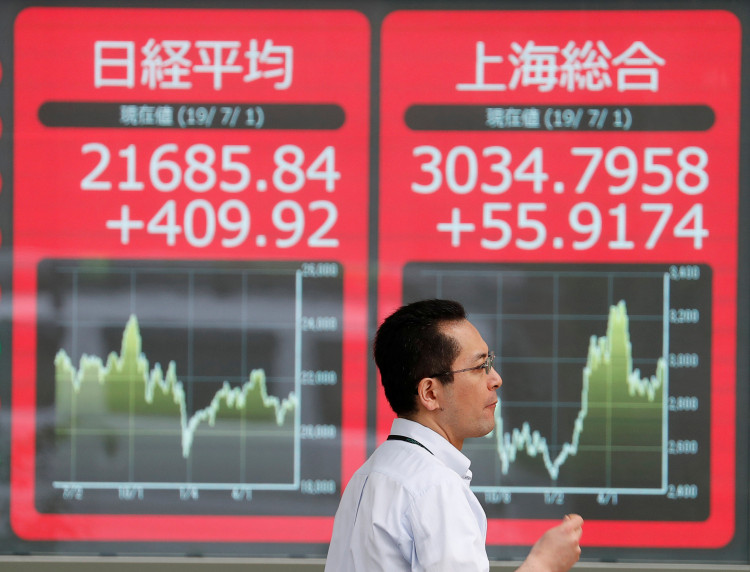Japan's Nikkei 225 index surged past the 40,000 mark for the first time, signaling a potent resurgence in the nation's equity markets. This remarkable rally, underpinned by robust corporate earnings, a favorable currency environment, and burgeoning foreign investment, positions Japan as a compelling alternative to China's currently subdued markets. Analysts from Jefferies have projected Japan to be among the top-performing markets into the next decade, highlighting a burgeoning narrative of shareholder returns within the country.
The ascent of the Nikkei, which has outstripped other major global indices with a year-to-date gain exceeding 20%, was mirrored by advances across Asian markets. Notably, Taiwan's benchmark index reached a new zenith, propelled by the stellar performance of Taiwan Semiconductor Manufacturing Company, a pivotal player in the burgeoning AI chip sector.
Amidst this bullish backdrop, the focus also turns to China as the National People's Congress convenes, with investors keenly anticipating policy directives aimed at revitalizing the Chinese economy. With a growth target around 5% expected, the world's second-largest economy faces the arduous task of navigating multiple challenges, including stabilizing its property sector and reversing capital outflows.
Concurrently, the corporate governance landscape in Japan is undergoing significant scrutiny, particularly in light of U.S. activist fund Elliott Investment Management's recent moves. Elliott's engagement with Mitsui Fudosan, Japan's premier real estate group, underscores a broader push for enhanced corporate governance and shareholder value maximization across Japan Inc. This dynamic interplay between activist investors and traditional Japanese corporations may serve as a litmus test for Japan's commitment to reform and modernization in the corporate sector.
Elliott's advocacy for a nearly $7 billion share buyback at Mitsui Fudosan, and its previous success in effecting change at Dai Nippon Printing Co., exemplifies the growing influence of activist investors in reshaping corporate Japan. These developments, coupled with Prime Minister Fumio Kishida's reform agenda, suggest a pivotal moment for Japan's economy, with potential implications for its standing as an investment destination.
As Japan's Nikkei 225 index breaches historical highs, the narrative of Japan's economic resurgence gains momentum. However, the sustainability of this rally may hinge on tangible progress in corporate governance reforms and broader structural changes within the Japanese economy. The actions of activist investors like Elliott, alongside the policy initiatives of the Kishida administration, will be critical in determining whether Japan can transcend its legacy of stagnation and emerge as a beacon of growth and innovation on the global stage.






